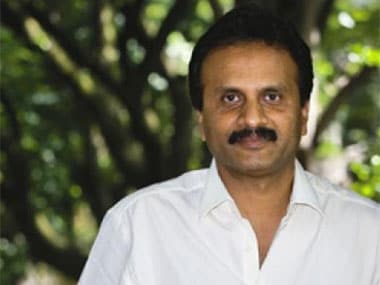For someone who spent five years as a senior business journalist in what was then called Bangalore, I never met VG Siddhartha. But his presence could be felt everywhere. On the streets. In conversations. And in the folklore of the city evolving at breakneck speed from being a pensioner’s paradise famous for beer to a global technopolis notorious for traffic jams. It also became known for coffee, with which Siddhartha’s name became synonymous.
The very fact that I could not get to interview him but feel his presence is symbolic of who Siddhartha used to be: the dynamic, wealthy, somewhat elusive son-in-law of a sitting state chief minister in a country where the son-in-law is a cherished figure in rural, patriarchal households. Named after the prince-turned-renunciate who founded Buddhism, one of India’s great religions, Siddhartha preferred a fall to death when confronted by life’s sorrows and pressures than retire as a renunciate.
The dizzy rise and the tragic suicide of this entrepreneur who founded India’s Starbucks could be the story of latter-day Bangalore. The city’ name changed to Bengaluru in a throwback to the past but in every other sense, it was caught in a modern whirlpool of change in economics, politics, finance, taxation, and technology. I have memories of sitting in India’s first cybercafe on Brigade Road on a visit to Bangalore, and it must have been only months after the arrival of the Internet in India in 1995. It was the place to be, and it was called Coffee Day. The global chain called Cafe Coffee Day was probably not even in a glint in founder Siddhartha’s eye that time. Everybody knows Bangalore now as India’s Silicon Valley. What is less known is that India is the world’s 7th ranked coffee producer, Karnataka is India’s top coffee-growing state and Amalgamated Bean Coffee Trading Company, founded by Siddhartha, a coffee-planter’s-son-turned-finance-executive, became India’s leading coffee exporter in the year Internet arrived in India. What is also less remembered is that a frost-based failure in Brazil’s coffee plantations in 1994 helped Karnataka’s planters the way outsourcing of software helped the state’s information technology entrepreneurs. Siddhartha was then a man who could not go wrong. His father-in-law, SM Krishna, became Karnataka’s chief minister in 1999, the same year Bangalore-born Infosys listed on the Nasdaq to formally announce India’s arrival on the world software map. The son-in-law was the name behind Way2Weath Securities, which had a venture capital division called Global Technology Ventures (GTV). Suddenly, coffee money had become software fuel. Somewhere along the way, Siddhartha put his Midas finger on Sical Logistics, a listed service player that completed his wide business arc that touched farming, finance, manufacturing, and services. [caption id=“attachment_7078891” align=“alignleft” width=“380”]  Caffee Coffee Day founder VG Siddhartha. Photo credit Forbes India[/caption] I was present in 2005 at the inauguration of the 12-acre Mindtree campus in GTV’s picturesque Global Village Park on Mysore Road. Though a key backer of the company founded by former Wipro executives, Siddhartha was not around. But his name was. In the background, the tides were turning, one that would engulf the man who was riding it to drown him from the blindside. His exit this year from Mindtree amid financial tensions as he sold his stake to an arm of Larsen and Toubro was the last big headline featuring him before his disappearance, unless one counts speculation that he was trying to sell the CCD chain to Coca Cola. A friend called up from Bangalore after Siddhartha’s disappearance in a Mangalore river bank to sum up the two decades. “At that time, Internet access was expensive and the coffee was free. Now the coffee is expensive, and the Internet is more or less free.” Everything changed over the past 15 years. SM Krishna was no longer a mover and shaker in Karnataka. Coffee no longer enjoyed the high prices it once did. Cafe Coffee Day grew into a big chain and went public, but it was not easy for Siddhartha to straddle three Ps—plantations, politics, and public companies. Krishna joined the BJP in a move perceived to be coincidental with the struggles of his son-in-law. However, by now, he was an afterthought in state politics dominated by Prime Minister Narendra Modi’s juggernaut that turned south. To make it all worse, the taxman was after Siddhartha in a state where whispers once talked of every powerful door opening for him. Some say new tax rules were not conducive to Siddhartha’s business that mixed an individualist style with a conglomeration of diverse business lines and financial jugglery. His own finger pointed at harassment by tax officials, something that would be discussed threadbare in the coming days.
Two decades of entrepreneurial vigour show Siddhartha was more than just a lucky son-in-law. He could build a world-class consumer brand business, take companies public and juggle diverse industries that stretched literally from farm to fork as CCD outlets diversified into fancy snacks from the familiar aroma of brewing Arabica.
The Siddhartha Saga will be discussed in the decades ahead as one that reflected Bangalore’s jazz age. For his turning a simple filter drink from the south into a national pastime with global ambitions, and probably over how intersections in technology, finance and politics can cause ups and downs. They would talk about all this over a mug of frothy cappuccino or a lager. (The writer is a senior journalist and commentator. He tweets as @madversity)


)

)
)
)
)
)
)
)
)



